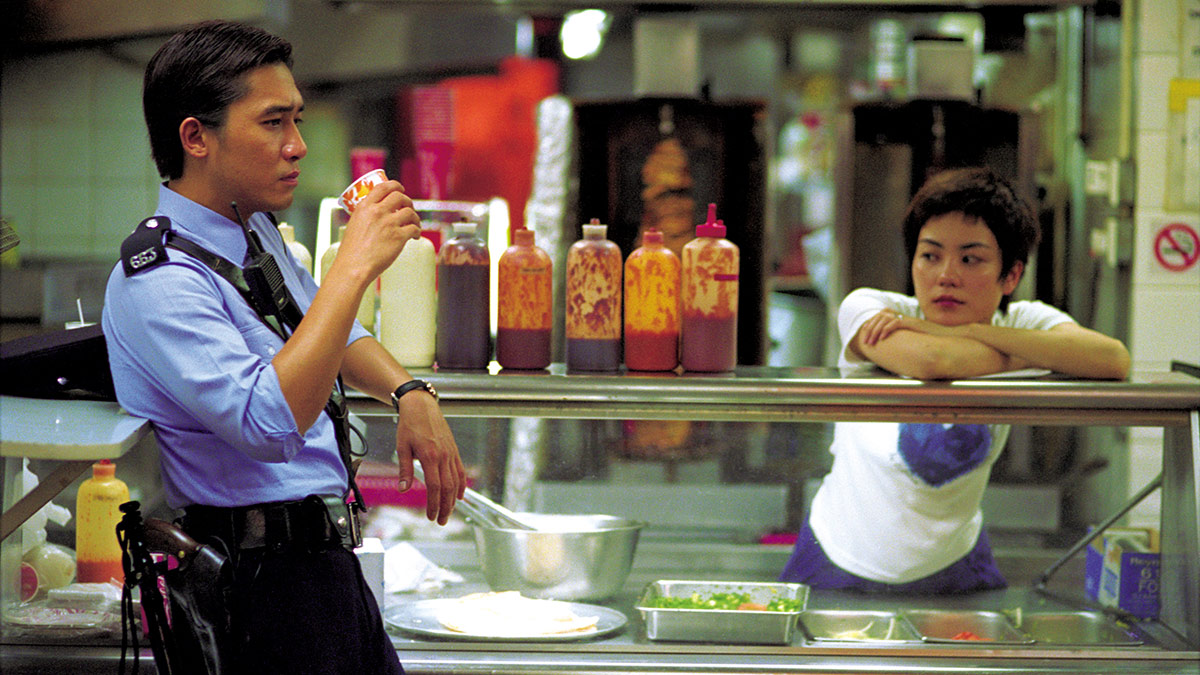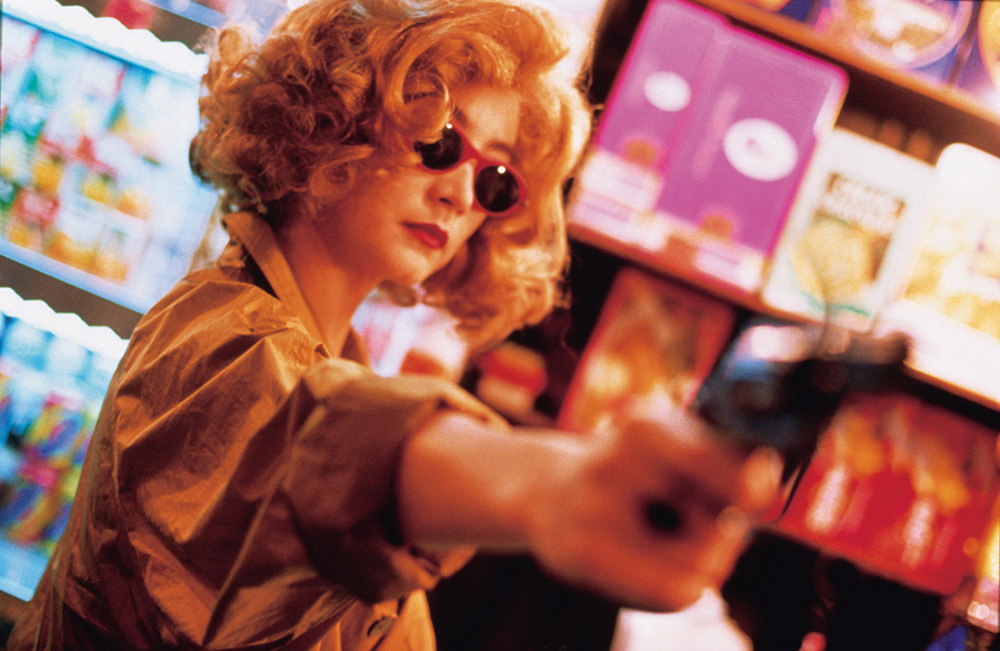
© 1994, 2008 Block 2 Pictures Inc. All Rights Reserved.
“Chungking Express” The atmosphere that flowed through Hong Kong in the early 1990s as captured by the masterpiece of romantic movies
2021.09.21
Part 1: The story of deadlines and capitalism
The story of ``Chungking Express'' consists of the first part, which is set in the Chungking Mansions, a huge building in the downtown area, and the second part, which revolves around the nearby delicatessen shop ``Midnight Express.'' Consisting of What is noteworthy is that both Parts 1 and 2 suggest the keyword ``Hong Kong's return.''
On July 1, 1997, Hong Kong's sovereignty was transferred from Britain to China. Filming for ``Chungking Express'' took place in the spring of 1994, about three years earlier. Going back 31 years, in 1963, Kar-wai moved from Shanghai to Hong Kong at the age of five. The end of Hong Kong's political and economic system, which had lasted for 155 years since 1842, was probably a big event for Kar-Wai as well.
The first part of the film tells the story of deadlines and capitalism. Detective Mo (Takeshi Kaneshiro) broke up with his girlfriend Mei on April 1, 1994, and from that day on, he started buying cans of pineapple every day. ``Every day, I bought a can of pineapple with a deadline of May 1st.Pineapple is May's favorite food, and May 1st is my birthday.If May doesn't return even after I buy 30 cans, this love will be over.'' Mo says. However, Mei does not return.

“Chungking Express” © 1994, 2008 Block 2 Pictures Inc. All Rights Reserved.
Convinced that he has broken up with his lover, Mo visits a bar and decides to fall in love with the next woman who comes in, and meets a blonde female drug dealer (Bridget Lin). The woman was also run away by a man she was in love with, betrayed by her fellow Indians in a drug deal, and was exhausted by the attempts on her life. The woman passes out drunk while treating Mo, and Mo takes care of her and enters the hotel. Mou spends a quiet night with the sleeping woman in his eyes, and leaves the hotel early in the morning. After that, a woman left a message on Mo's answering machine wishing him a happy birthday.
``A certain woman wished me a happy birthday. I became an unforgettable person. I hope this can of memories never expires. Even if it lasts for 10,000 years, it would be fine.'' From the beginning of the story, Mo is chased by a deadline, and continues to think about it until the end. Meanwhile, the woman shoots the man who left her, throws away her blonde wig, and disappears into the crowd.
The reason why this ``deadline'' reminds us of the time limit until Hong Kong's return is because Mo's love life is a direct reflection of Hong Kong's capitalist society. Mo buys mass-produced canned food at a convenience store, drinks tarafuku sake, and when he gets to the hotel, eats four salads and watches two movies. In a not-so-long episode, Mo just keeps consuming. On the other hand, while eating a canned pineapple, Mo realizes, ``For Mei, there's not much difference between me and a canned food.'' It is the sadness of knowing that in a society of mass production and mass consumption, one is nothing more than a replaceable existence.
Under British sovereignty, Hong Kong has maintained a capitalist system different from mainland China. Following the handover of Hong Kong, China has adopted the "one country, two systems" principle, pledging to maintain capitalism for at least 50 years and to remain unchanged for 50 years. However, with the handover just three years away, the citizens of Hong Kong must have had a fair amount of anxiety about the politics and economy with which they have long been familiar.

